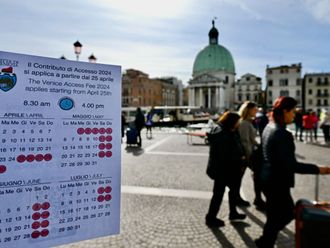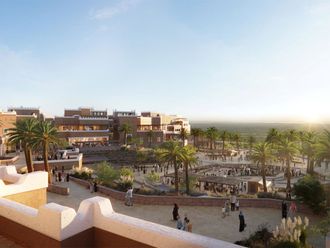Dubai: In order to keep pace with the quality of new supply hitting the Gulf hotels market, the older hotels across the region will either face shutdown this year or will need to invest in renovation, according to hospitality business property adviser Christie + Co Mena (Middle East and North Africa).
"Older properties across the Gulf countries will see a number of closures [in 2012] and major renovations to keep pace with the quality of new supply," the firm said in a recent report titled International Business Outlook 2012, adding that it expects hotel development in 2012 to be focused on Qatar and the completion of hotel projects in the UAE.
Asked what this year has in store for UAE hotels, Gavin Samson, director of Christie + Co, Mena, told Gulf News: "As the global environment has changed and UAE hotels can no longer depend upon sustained high rates and high occupancy, it has become increasingly important to differentiate product and drive guest value, so we are going to see more hotels considering refurbishment and renovation over the next two to three years."
Renovated properties
Hotels such as City Seasons Abu Dhabi and Mövenpick Doha have recently completed renovations, while the Crowne Plaza Deira, Pullman Deira City Centre and Le Meridien Mina Seyahi in Dubai, as well as the Radisson Blu Kuwait are undergoing refurbishment, the advisory firm said.
"Hotels are becoming more cautious about their operating environment and long-term projections, making it a good time to consider renovations. Similarly, they will focus on overall performance improvement, including reviewing operator agreements," Samson said.
Furthermore, as hotel contracts come up for renewal, owners with international agreements may want to consider changing hotel operators, Samson said.
"And owners with unbranded properties may look to reposition under a recognised hotel brand or a franchise."
He added that many of the UAE's early flagship hotels are nearing the end of their useful operating life.
"And this poses a conundrum for owners in terms of what do with old, yet internationally branded hotels in an increasingly competitive operating environment," Samson said.
Asked how he saw Dubai hotel revenues faring this year, Samson said he sees "the best potential during 2012 to be in Dubai" in the luxury and upscale five-star segment.
"In general, total hotel revenues are strongly driven by average room rate and occupancy. Over the coming year, performance of these two factors will depend upon the location of the hotel and the category," he said.
Pockets of opportunity
"Overall, in an area that has always seen volatility and recovered from it, there are pockets of opportunity and growth potential — although some countries will face an uphill political and economic journey during 2012 before the recovery of the hotel industry," the report stated.
However, Qatar will take the limelight this year for new hotel development, driven by its rapid econ-omic growth and hosting of the 2022 World Cup.
Meanwhile, in the UAE, concern with the future hotel supply-demand relationship has moved from Dubai to Abu Dhabi, the report says.
Markets with potential
While the UAE hotels are set to perform well this year, Saudi Arabia and Oman will also see tourism business escalating. Saudi Arabia will be a "growth market", not only in its unique religious tourism market of Makkah, where hotel performance continues to be strong despite significant additions to supply, but in secondary cities and around commercial hubs, according to the Christie + Co analysis.
Oman, meanwhile, will see major tourism projects move forward during the year, evidenced by a revival of activity towards the end of 2011.
Jordan, Lebanon and Syria, on the other hand, show "potential for the longer term", but volatility in the region will hamper any serious investors from committing at present, and much of Northern Africa will be subject to the same experience, according to the report.
It also stated that in the much longer term there is "significant potential" to develop new hotels in Libya and Syria.












